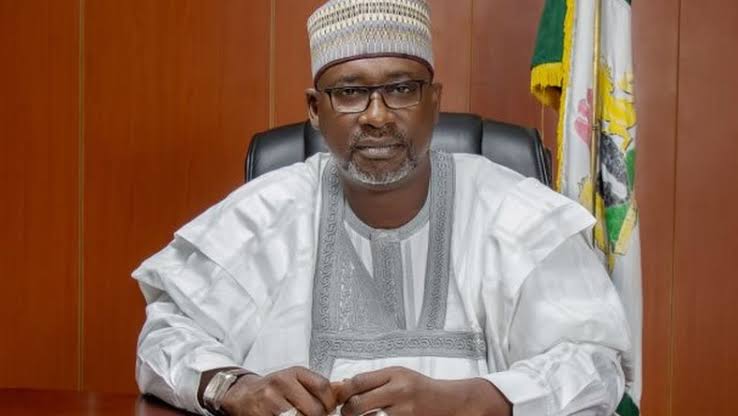Water Resources Bill will boost irrigation farming system–Minister

Mr Suleiman Adamu, the Minister of Water Resources, says the passage of Water Resources Bill will boost irrigation farming system and enhance food security in the country.
Adamu made this known when he appeared at the News Agency of Nigeria (NAN) Forum in Abuja.
He said that the bill would enhance both domestic and non-domestic use for irrigation, navigation, agricultural and fishery purposes as well as generation of hydro-electric energy.
He said that the Federal Government has 130,000 hectares of formal irrigation infrastructure, adding that the ministry was initiating a project with World Bank on irrigation system.
He said that the project was tagged: Transforming Irrigation Management in Nigeria project (TRIMING), adding that the project was not only about rehabilitating the infrastructure but revolutionising irrigation management.
“When I came into office, more than 70,000 hectares can be used during the dry season, and about 60,000 hectares are not being used during the dry season.
“This is because there was no maintenance, the canals are blocked and therefore we have come into a new concept we are working now with the World Bank on the Nigerian TRIMING project.
“This project will enhance the farmers in various areas as well as boosting food production in the country,’’ he said.
Adamu said that the fundamental thing about Water Resources Bill already in the National Assembly was that it would empower irrigation farmers in the country.
He said that the bill was also providing opportunities to farmers to initiate Water Users Associations as such would help them manage and maintain the infrastructures for the irrigation system.
“The bill will provide for farmers to be allowed to form water user associations so that they can collect part of this money that they are supposed to be paying for water, put it in the pool and be using it to manage the infrastructure themselves, again is another empowerment on our irrigation farmers.
“So therefore, the idea will bring about empowerment on our irrigation farmers that way, there will be more efficiency in the irrigation system.
“This means that farmers will no longer be waiting for the Federal Government to rehabilitate the system for them because they are already being empowered,’’ he said,
Adamu said that the TRIMING project was part of the government`s commitment in enhancing food security.
According to him, the project will help to take the farmers away from a manual production system of farming.
“It is time we put in place all our investment to make sure that irrigation infrastructure is working effectively.
“We cannot as a country of 200 million people continue to rely on rainfall agricultural system. We need to be producing enough food that is one of the reasons we are looking into the irrigation system as it will boost our agriculture as well as our economy,’’ he said.
The minister said that the ministry had developed a new Water Sanitation and Hygiene (WASH) Action Plan adding, that it was launched by the president in 2018.
He said that WASH was designed to promote hygiene practices to help various communities realise and achieve greater health benefits and improving sanitation and hygiene across the country.
“We have been doing studies on our water supply sector and we realised that in 1992, 30 one per cent of the Nigeria population was enjoying pipe borne water but as at 2015, it dropped to seven per cent.
“So we have to do something, we decided to work with our development partners and within a year we developed a new WASH Action Plan, which the president launched on Nov. 8, 2018 and declared a state of emergency on WASH sector.
“We all know that water and light are the basic ingredients of life, some states have not been investing enough in water supply sector maybe because they don’t realise that water is dynamic and the population is strongly growing.
“If you want to be supplying adequate water, you have to move more two steps ahead of the population.
“So before the population get to two million, you must have adequate water supply of 12 or 13 million and by the time the population is getting to 13 million, you are already getting the facilities that will serve about 20 million people.
“I think that is the best way to enhance water supply and the facilities, but there is a lot of break down in certain states that today, the existing scheme that have been there for the past 30 years are the only schemes that are still existing.
“The schemes are not even being managed well and they are operated in optimum capacities because the equipment are not being replaced or maintained and that is why the systems are not working.
“So when we analyse all these challenges, we decided to have a WASH farm and through the farm, states can now draw money from it to add to their budgetary allocations so that they can invest more in water and sanitation sector.
“In that effect, we now introduced this WASH farm 2020 edition of water resources bill.
“In that, we involve all the states and various relevant stakeholders in the WASH action plan, we decided that the country must have a WASH farm as that will help the states government to be more effective in the sector,’’ he said.
Adamu, however, advised all the states government and other relevant stakeholders to support in promoting the sector to enable it achieve global practices in water resource management in the country.
